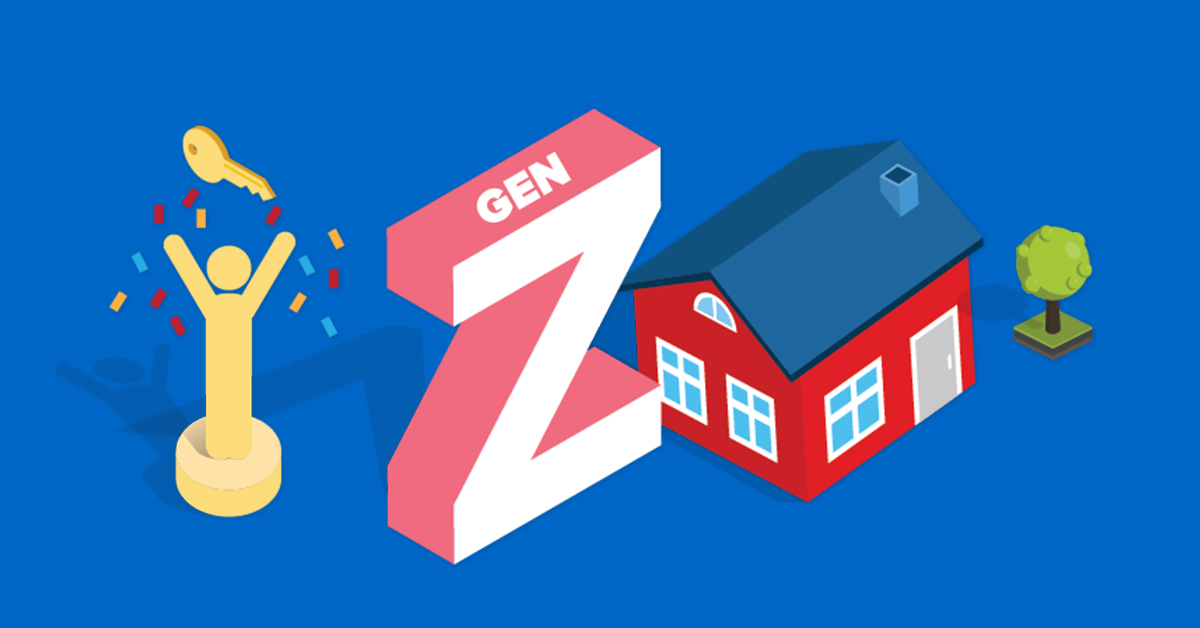Homeownership has long been considered a cornerstone of financial stability and independence. However, for Generation Z, born between the mid-1990s and early 2010s, the dream of owning a home often feels out of reach. Rising property prices, student debt, and stagnant wages present significant hurdles. Despite these challenges, there are strategies Gen Z can adopt to transition from renters to homeowners, turning aspirations into reality.
A Look At The Challenges
Before diving into solutions, it’s important to recognize the challenges unique to Gen Z. This generation faces a housing market that has experienced unprecedented growth, pricing many out of the market. Additionally, high rents consume a substantial portion of monthly income, making it harder to save for a down payment. Add student loans and increasing living costs and the path to homeownership seems daunting.
To overcome these obstacles, one must first understand them. Gen Z Homeownership isn’t just about money; it’s about planning, leveraging resources, and making strategic decisions.
Start With A Clear Financial Plan
The journey to homeownership begins with financial clarity. Assessing your income, expenses, and outstanding debts should be your first step. Use this information to create a realistic budget that prioritizes saving for a down payment. Over time, even a little monthly contribution can build up.
Establishing a savings account, especially for your future house, will help you stay motivated. Automating deposits into this account ensures consistency, making it easier to build a substantial savings fund without constantly thinking about it.
Build And Maintain Good Credit
Applying for a mortgage requires having a high credit score. This score is used by lenders to evaluate your borrower’s reliability. Paying off existing debts and reviewing your credit report for mistakes should be your first priorities. You can greatly raise your credit score by regularly making on-time bill payments and maintaining modest credit card balances.
If you don’t have any credit yet, you might choose to apply for a secured credit card or add yourself as an authorized user to a family member’s account in order to safely establish credit.
Leverage First-Time Buyer Programs
Numerous financial institutions and governments provide initiatives aimed at assisting first-time homebuyers. These programs often include benefits like lower down payment requirements, grants, or subsidized loans. Research options available in your area to find programs tailored to your needs.
For example, some programs allow buyers to purchase homes with as little as 3% down, significantly reducing the upfront cost of homeownership. Additionally, rural or urban development programs may provide incentives for buying in specific areas.
Rethink Location And Lifestyle
Flexibility in location can make a huge difference. Urban centers with high demand often come with exorbitant prices, but looking at surrounding suburbs or smaller towns can reveal more affordable options. Gen Z’s comfort with remote work also opens the possibility of relocating to areas with lower housing costs.
Moreover, consider adjusting your expectations for your first home. Instead of aiming for a dream house, focus on a starter home that fits your budget. As your financial situation improves, you can always upgrade later.
Explore Alternative Housing Options
Affordable homeownership can sometimes result from unconventional thinking. Options like tiny homes, container homes, or co-buying with friends or family members are gaining popularity among younger generations. These alternatives are often more cost-effective and allow you to enter the market sooner.
Additionally, purchasing a fixer-upper might be a practical option. While it requires effort and investment, it can provide an affordable entry point into the market and potentially build equity as you improve the property.
Educate Yourself About The Market
When it comes to the property market, information is power. Spend time understanding how mortgages work, the costs involved in buying a home, and the real estate market trends in your area of interest. Many online resources, seminars, and local workshops can provide valuable insights.
Another way to make the process easier is to work with a reputable real estate agent. They can guide you through the complexities of buying a home, from finding properties to negotiating terms and securing financing.
Patience Pays Off
Lastly, remember that homeownership is a long-term goal. It’s okay if it takes time to achieve. You can create a route to house ownership by being focused, establishing reasonable objectives, and being aggressive. Celebrate small milestones along the way, such as reaching savings targets or improving your credit score, as they bring you closer to your dream.
Conclusion
For Gen Z, moving from renting to owning is a big jump, but it’s not impossible. With financial planning, strategic decision-making, and a willingness to adapt, homeownership can become a reality even in a challenging market. By taking the first steps today, Gen Z can position themselves for a future where owning a home is not just a dream but a tangible accomplishment.































